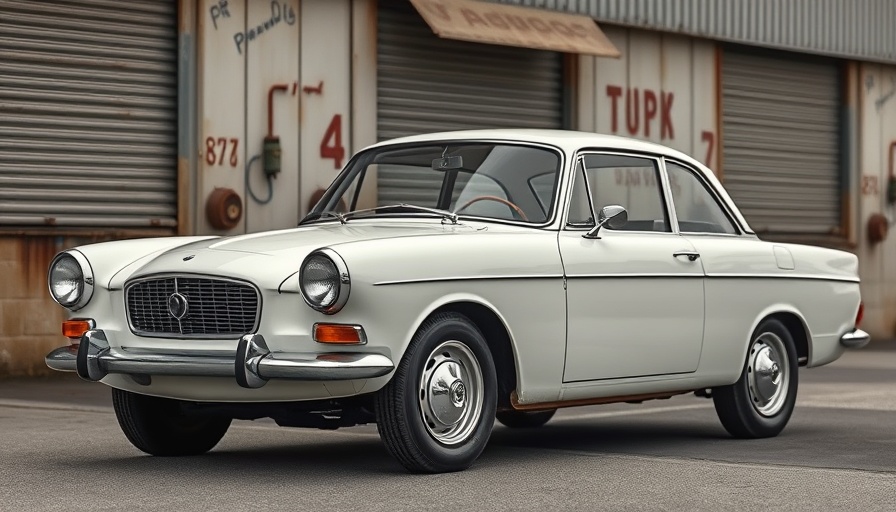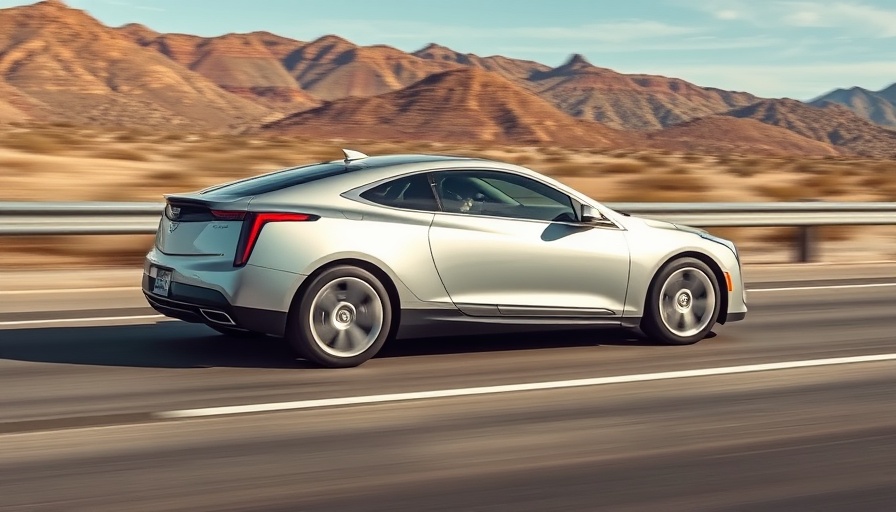
Rediscovering the NSU Prinz 1000: A Classic Underdog
When it comes to rear-engine, air-cooled German cars, most enthusiasts immediately think of the iconic Porsche 911. Yet hidden in the shadows of this automotive legend lies a quirky contender that not only captures the imagination but also delivers a unique driving experience—meet the NSU Prinz 1000. While the Porsche shines with its refined reputation and racing pedigree, the Prinz 1000 boasts a character all its own, making it an intriguing choice for car aficionados looking to dive into something different.
The Origins of the NSU Prinz
Born in 1963, the NSU Prinz was developed to navigate the bustling streets of post-war Europe. Unlike the smooth, meticulous curves of the 911, the Prinz is a boxier, more exuberant vehicle, inviting drivers and spectators alike to appreciate its playful design. The heart of the Prinz lies in its 1297cc air-cooled inline-4 engine, nestled snugly in the trunk, producing 85 horsepower and 80 lb-ft of torque—a spirited performance given its weight of just 1,450 lbs. It holds its own well against more powerful rivals like the 1971 Porsche 911T, which on paper outperforms it but often failed to capture the funkiness and driving joy the Prinz brings to the table.
Performance Capabilities and Fun Factor
Performance comparisons highlight the strengths and weaknesses of both models. While the 911T can hit 0-60 mph in approximately 8.5 seconds, the Prinz lags slightly at around 10.5 seconds. However, the Prinz's lower weight contributes to a different type of driving engagement. The Prinz was designed with fully independent suspension and a high-revving aluminum OHC engine, making it nimble on tight corners and exhilarating to drive sideways—characteristics that purists will appreciate. Moreover, in rally stages, the NSU Prinz regularly bested heavier competitors, proving that it wasn’t just a novelty vehicle but a serious contender in its own right.
An Unusual Automotive Legacy
The story of NSU Motorenwerke AG is as unconventional as the Prinz itself. Originally founded in 1873, the company shifted from producing knitting machines to bicycles and then transitioned to motorcycles, eventually becoming the largest motorcycle manufacturer in Europe. The evolution into automobiles aligned perfectly with changing consumer preferences, leading to the birth of the Prinz. Its evolution into models like the high-performance TT and TTS variants showcases how this simple vehicle laid the groundwork for NSU's automotive innovations.
The Appeal of Owning a Classic Like the NSU Prinz
For collectors and automotive enthusiasts, the NSU Prinz 1000 presents numerous advantages. First, it is often more affordable than a Porsche, making it an easy entry point into classic car ownership. Additionally, it offers a distinct driving experience. Owning a Prinz means partaking in a quirky, vibrant slice of automotive history that contrasts with more mainstream options. It’s an opportunity to explore the origins of German automobile engineering and diversify a collection with a car that’s just as fun, if not more so, than its more famous counterpart.
Current Trends and Predictions in Classic Car Markets
As we look towards the future of the classic car market in 2024, interest in unique vehicles is on the rise. Enthusiasts are gravitating towards underappreciated models like the NSU Prinz that embody a spirit of originality and charm. Indeed, as more people seek out vehicles that provide fun, classic comfort, and lower costs of ownership, the Prinz 1000 is poised to become a sought-after classic.
Final Thoughts
While the Porsche 911 will always hold a revered place in the hearts of car lovers, the NSU Prinz 1000 stands as a testament to the exciting landscape of automotive history. It invites enthusiasts to look beyond the mainstream and explore the joy of driving something unique. As the automotive industry continues its path towards electrification and technology, classic gems like the Prinz will remind us of the driving pleasure that simplicity can afford.
 Add Row
Add Row  Add
Add 




Write A Comment